‘We left everything behind and started running’: Voices away from home in Uganda, South Sudan and Ethiopia
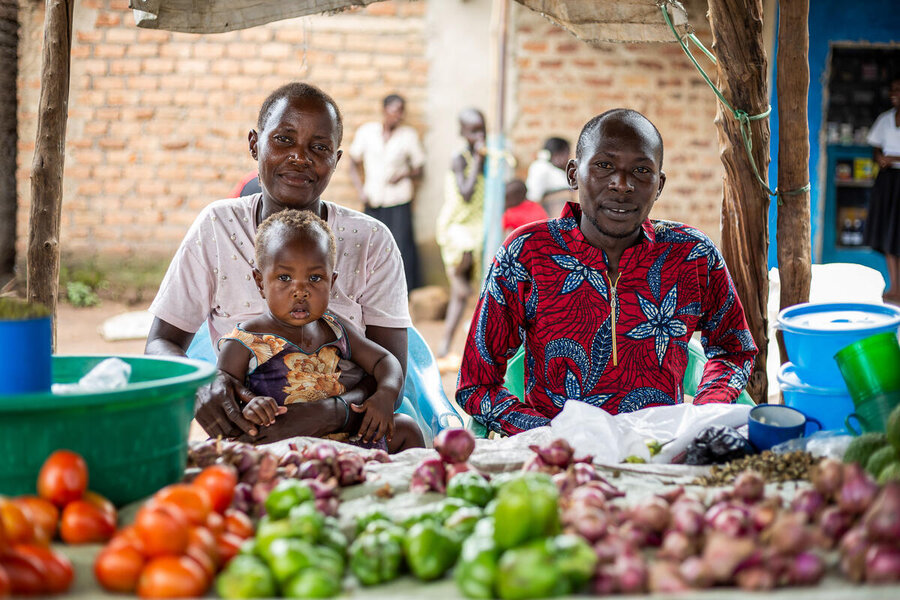
Whether refugees, returnees, or internally displaced, 26.5 million East Africans uprooted from their homes by conflict are bracing for a tough 2025. Three people – among 18 million receiving World Food Programme (WFP) cash support in a European Union-backed initiative – offer vignettes of their lives below.
Meet Timothy
Timothy was abducted in 2017 as war raged in his native South Sudan. He was forced to fight as a child soldier. A year later he escaped across the border, ending up in Maaji II, a refugee settlement in the Adjumani district of Uganda’s Northern Region.
Maaji II residents count among some 225,000 people living in displacement camps scattered across Adjumani.
Once a month, vans roll into the camp. These blue vehicles belong to banks that the World Food Programme (WFP) is partnering with to deliver cash assistance to refugees. Refugees like Timothy hand their identification documents through a hatch.
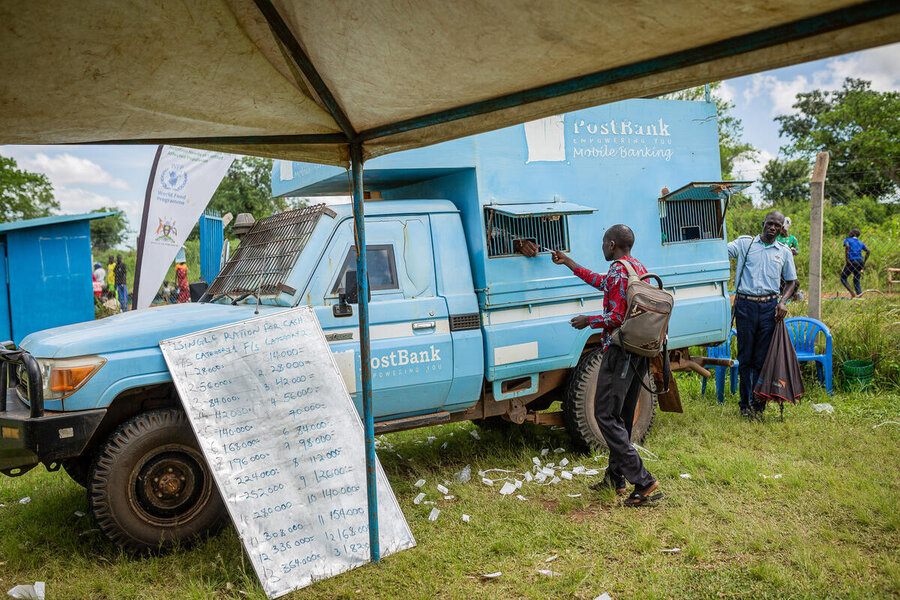
A few seconds later, a wad of cash appears; each family member is entitled to 14,000 shillings monthly, nearly US$4. “I left South Sudan with nothing, not even a chicken, no food. I came with nothing,” says Timothy. “With the cash grants, I can rebuild my life”.
Shortly after he arrived, Timothy rented a small plot of land and started growing vegetables.
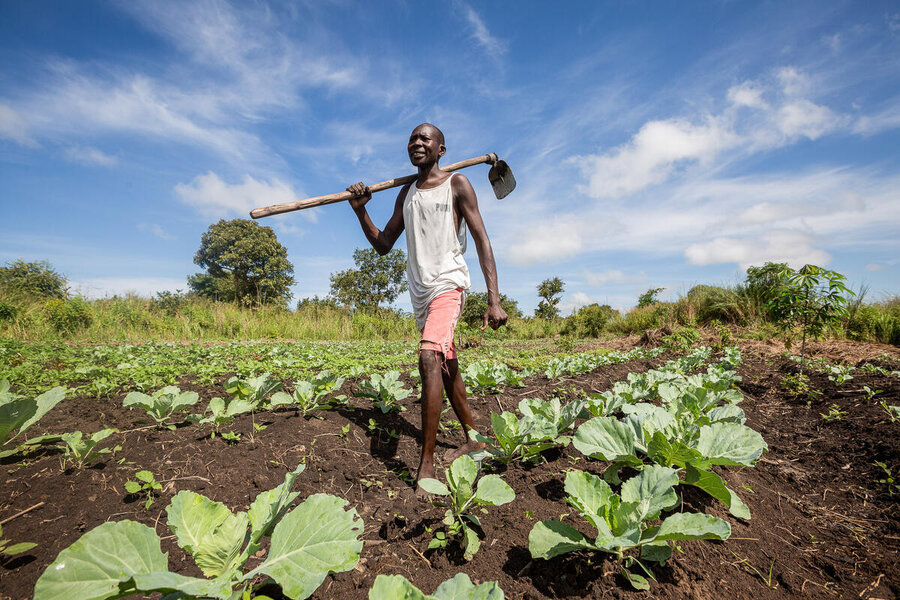
Today, he and his wife Mary – with whom he has a 12-month-old child – are growing enough maize, sorghum, peas and cabbage to sell to other refugees and the host community. Timothy has even managed to buy two goats – a source of dairy products.
By last July, WFP had replaced food assistance with cash for the refugees living in Adjumani. There are powerful reasons for the switch. In places like Uganda, with vibrant and functioning markets, money allows people to choose the foods they prefer while contributing to the local economy. It also offers people the know-how to save through financial education.
While he knows he’s on a long road toward fully self-sustaining farming and independence, Timothy can now visualize longer-term security with the ambition of building a “nice, bigger house for the family”.
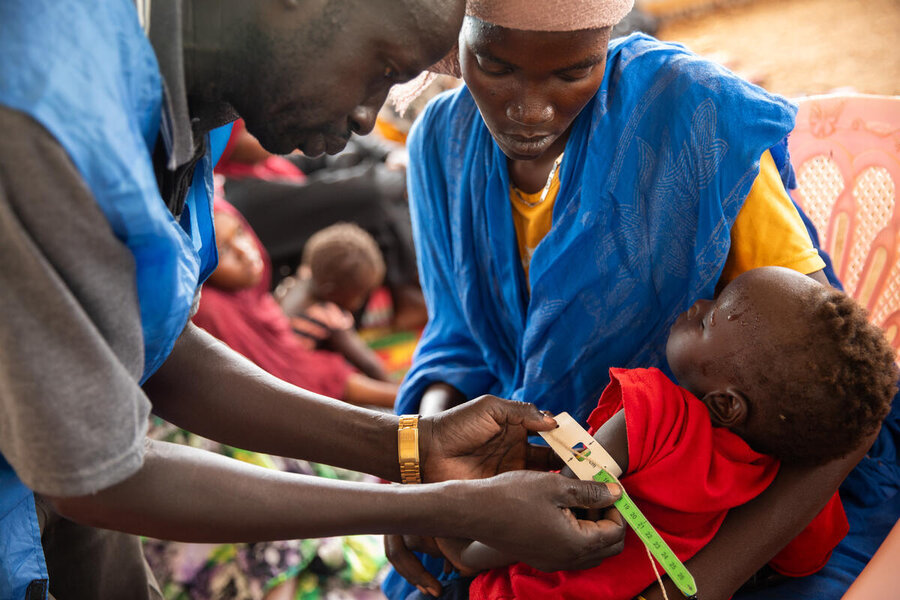
Meet Hania
Hania, in her late twenties, left Sudan with her three children after war broke out in April 2023. The family crossed into South Sudan, where they now live in the border town of Renk.
It was a difficult homecoming. Like Timothy, Hania was born in South Sudan. But she left with her mother when the country’s civil war broke out, in 2013.
“It was good, in Khartoum,” Hania says, recalling the new life they had built in Sudan's capital, as she cradles her 18-month-old son. “We were doing well. If you worked, you got something back.”
In contrast, life in Renk is tough. A transit centre for refugees and returnees, it is at bursting point. There are few opportunities to earn money. When the rains arrive, returnees like Hania cannot catch rides back to the communities they once knew.
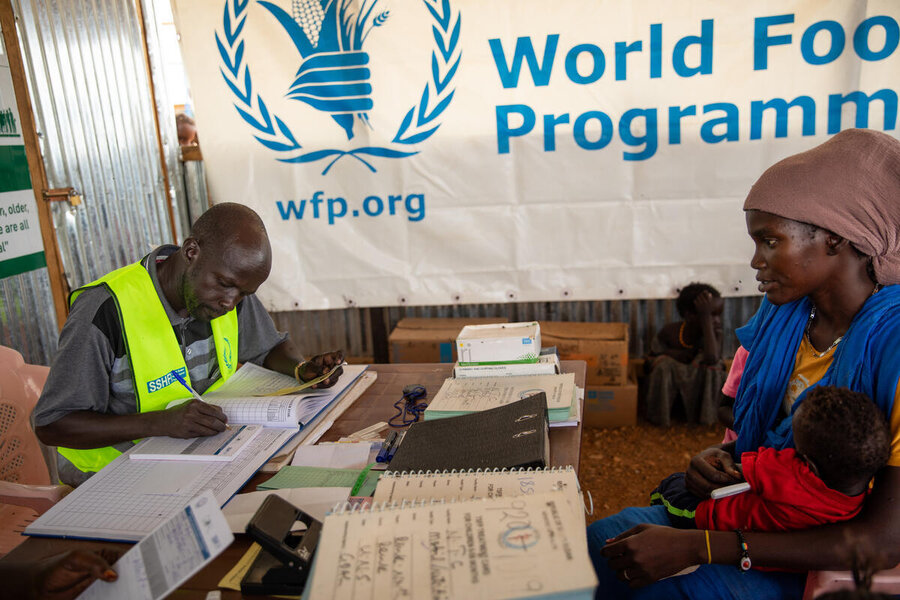
Renk, however, is one of South Sudan’s most food-secure places because it's an agricultural hub. Many new arrivals set up businesses. Marketplaces are full, even during South Sudan’s long lean season between harvests, which begins in May.
When she returned to her homeland, Hania received a one-off cash grant from WFP of around US$12 – a lifeline for her family. She supplements it by selling cups of tea.
Her income, however, is not enough to tide her family over in the long term. “I need to go to my home region because I can farm there,” Hania says. “I need to work to get my children enough food.”
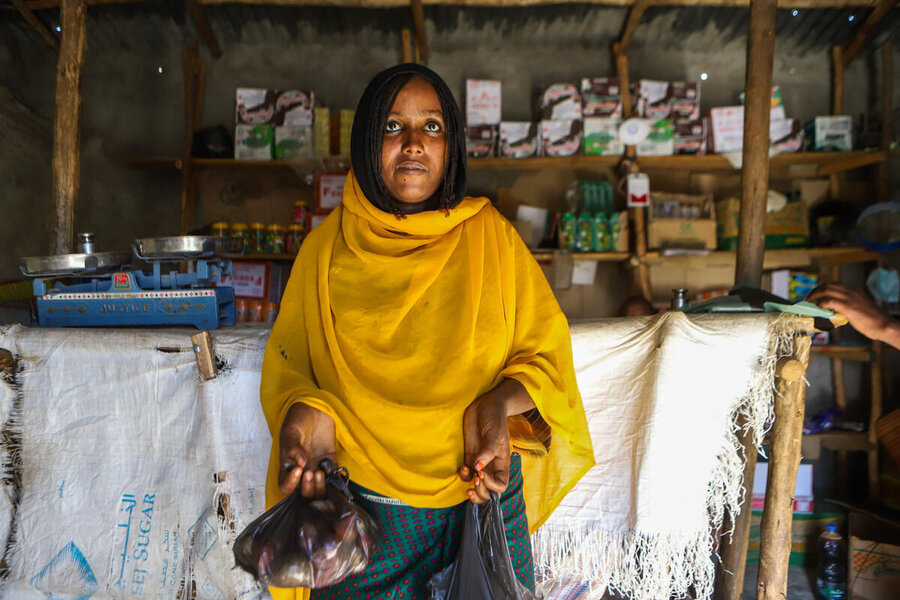
Meet Halima
Some 1,500km east of Renk, in Ethiopia, another mother is doing her best to rebuild a home for herself and her family, after being uprooted by yet another conflict.
In 2021, when fighting arrived in her village of Garmonyti, in Ethiopia’s northeastern Afar region, “we decided to flee,” says 33-year-old Halima, a mother of seven. “We left everything behind and started running.”
Her husband, Ahmed, initially stayed on to look after their livestock. However, he later joined them at a camp for internally displaced people in the Afar town of Silsa, 400km south, where she and her children ended up.
The fighting cost the family dearly. Besides losing her home and livelihood, Halima and Ahmed also lost their 4-year-old daughter to dehydration during the family’s 15-day trek to Silsa.
“I buried my daughter in the wild,” says Halima. “I didn’t have time to grieve. I had to keep moving because I had to think of my other children.
“Everyone in our group (of displaced people) lost someone; some children lost their parents, parents lost their children, wives lost their husbands. We were one in grief and numb with the shock. We only knew that we must keep going.”
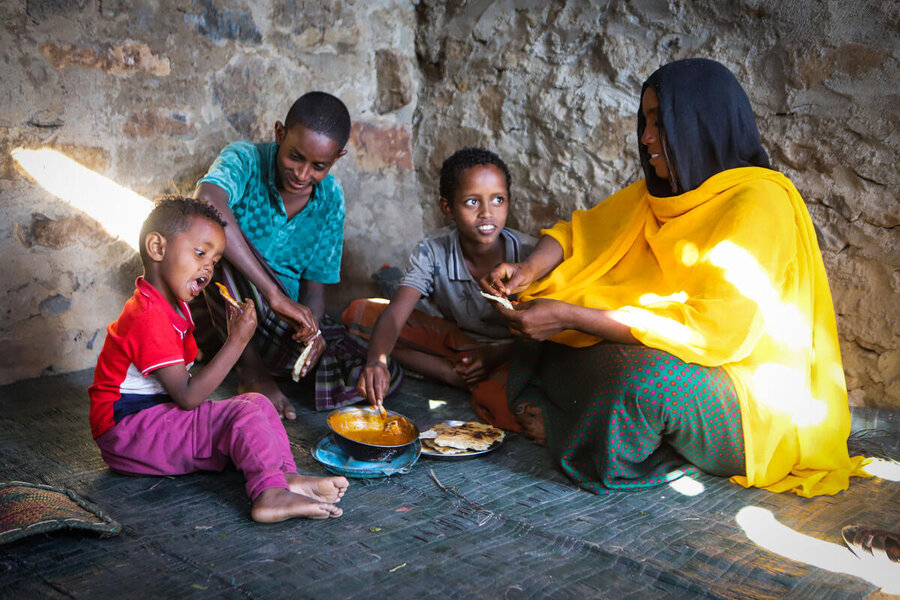
When they arrived, “We were received with such empathy and warmth by the community,” Halima recalls. “Even without speaking, they could understand how we suffered.” Another help: WFP cash and food assistance.
Last year, Halima and her family made the long journey back to their village, which is now one of the most food-insecure areas in Ethiopia, as the combined effects of conflict and climate-change-induced drought take their toll.
But WFP is again cushioning the impact – supporting displaced and host communities in Garmonyti with food distributions and cash transfers amounting to around US$50. This has enabled Halima to open her first bank account and start saving.
“What is left in the bank account will be my seed money,” she says of plans to start a small business to become self-sufficient.”
“We have no farm, the land is barren,” she adds. “Nothing will grow here because there is no water or predictable rain. We have no livestock – we lost it all during the war.”
With the cash, Halima can buy nutritious food and school materials for her children. “This is my role as a mother, making sure their needs are met.”
The European Civil Protection and Humanitarian Aid Operations (ECHO) is supporting approximately 24 million crisis-affected people in Ethiopia, Kenya, Madagascar, Mozambique, Somalia, South Sudan, Sudan and Uganda with life-saving cash and nutrition assistance: Cash and in-kind assistance is being provided to over 18 million people to meet basic food needs. Nutrition assistance is being provided to 6.8 million children aged under-5 and pregnant and breastfeeding women.
